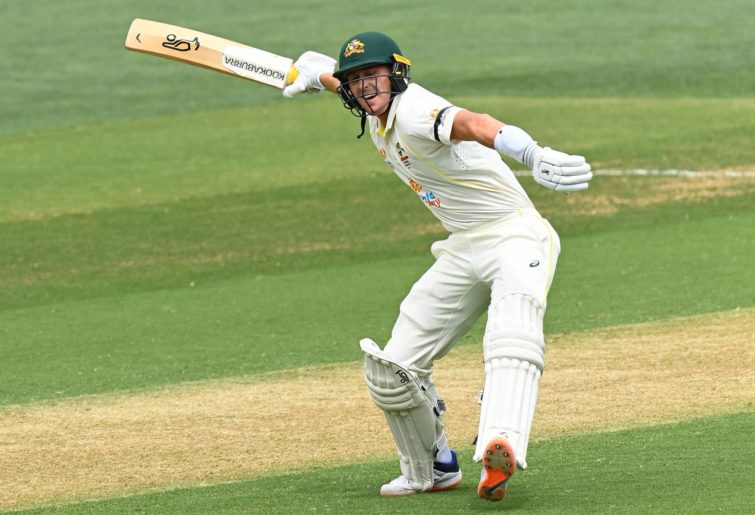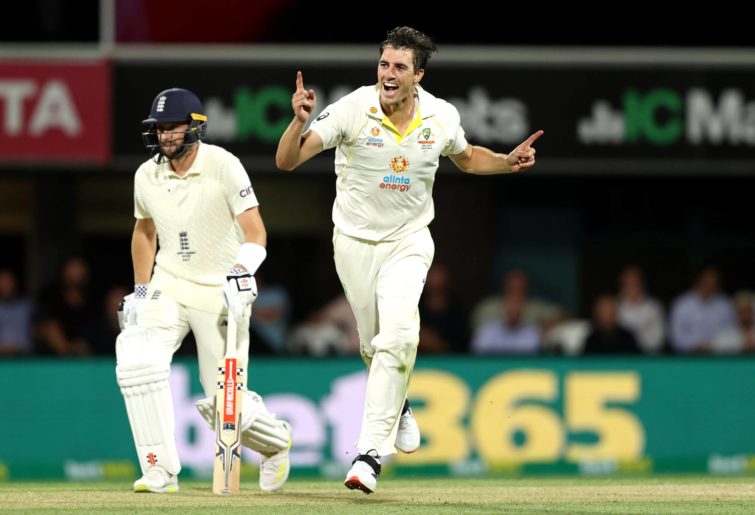In 2008, Justin Langer wrote a book about overcoming adversity.
In Seeing the Sunrise, his personality is patent. In the opening pages he quotes Ron Barassi and Vince Lombardi, and he likens his cricket career to that of a martial artist. Barassi celebrated his 75th birthday by hiking the Kokoda Track. By the time you finish the book, you see why Justin venerates him.
As a player, Langer was a fighter and a scrapper. He spent his first Test innings avoiding missiles sent down by Ian Bishop. He spent his 100th Test in hospital dyeing his pillow velvet. Most sane individuals, when confronted with the pressure and sheer physical danger of it, would have questioned if such a caper was worth it.
Langer, on the other hand, and despite all that, averaged in the 40s. He became one half of his country’s greatest opening partnership. Yet such was the era of Australian cricket, he always seemed to be batting for his spot.
He was never more than a few failures away from cricketing oblivion. It is that experience that told him he needed to stare down the peril, to meet fire with fire, and to dig in, lest he be another state cricketer angling for a job in insurance.
Men like Langer often covet head coaching jobs. They have the ambition and lust for legacy that’s required to justify the commitment. They’re willing to eschew all other aspects of their lives for it. More often than not, they’re martinets, with a Churchilian ability to ignore the whingers, the whisperers and the malcontents.
So, in January, when word first filtered out of the Australian dressing room that players were at their wits end with Langer, he was eager to front-foot the issue. He went straight to media street. The company line was that he would welcome the feedback, and who wouldn’t have told Marnus Laubuschagne to jettison his toasted sandwich before taking the field, anyway?

Was Sandwichgate the beginning of JL’s downfall?
(Photo by Quinn Rooney/Getty Images)
But there was always more to be gleaned. The Grade Cricketer’s Sam Perry, who would be privy to some of the more candid conversations in Australian cricket, said: “Some of the stories that are emerging, and some of the views of players, are astonishing in their contempt. It goes back a long way. And my question is: ‘how does it reconcile?’”
Those players had just been interviewed by a leadership consultant for an end-of-season review. It found what many Australian sports had grappled with a long time ago — that the players wanted more control over the team and its values, more ownership. The players also wanted their coach to, in The Age’s words, “delegate and lighten up.”
But ceding any sort of control would fly in the face of Langer’s coaching philosophy. To read anything about him is to learn that he’s managerial. From all reports he’s like an overbearing parent, one who wants to tell you life’s answers before you discover life’s questions.
He’s been where his players have been, he’s faced those demons, he’s worked them out. He knows how to steer this ship, if you would just give him the wheel. He’s only trying to help.
If wins papers over cracks, losses reveal them. By August there was water on Australian cricket’s boat. The team went to the West Indies and Bangladesh and went about as poorly as expected. Langer pilloried a digital content creator. Malcolm Conn wrote a puzzling piece about how he was treated in a similar role.
And there was yet more widespread news of player disaffection, especially when the coach questioned a hat-trick-taking debutant about his choice of wrist-wear.
Many of Langer’s former teammates then became convinced – and to a large degree, still are – that those dressing room leaks were the entire problem, that these copiously-compensated cricketers lack the wherewithal to stomach a spray, and were making calculated efforts to undermine their coach. As if players and their people weren’t simply speaking openly to journalists as they had always done.
All this against a backdrop: almost all other sports, and aspects of life, have become more benevolent. The stories of VFL coaches in years gone by – men Jonathan Horn calls “monumental hardarses” – are well mythologised. But the world has changed, people have changed, athletes have changed.
Teams have also understood they need their stars — to sell tickets and hope — more than they need their coach.

Do the players now hold too much power in Australian cricket? (Photo by Robert Cianflone/Getty Images)
If a playing group was a proletariat, it could band together to overthrow almost any coaching panel it saw fit. Even Ross Lyon, one of the most autocratic Australian coaches of this century, says he would now approach the job in an entirely different fashion, because coaching has become about relationships and connection and vulnerability, and about emboldening players to ride a wave rather than telling them how to surf.
Test cricket has barely come to terms with the concept of a coach. It’s hardly surprising given days of yore. Team meetings in Ian Chappell’s day consisted of him asking his bowlers to hit the top of off stump before they all “knocked the top off a beer”. All other bowling plans were devised between balls, and between the wicketkeeper and second slip.
Invariably, the players get their man. Langer’s ex-teammates have promptly broadcasted their flinch reactions on radio, social media and in the broadsheets. This is a results business, after all.
Or is it?
Preeminent mindset coach Ben Crowe, who must be the man most responsible for Australian sport’s recent enlightenment, would probably tell you that results are outcomes and out of your control. What is within your control, and therefore worth focusing on, is your mindset, the words you tell yourself every day. That is how one finds meaning and purpose: by finding it in the activity itself, not by attaching it to an outcome.
This has been Langer’s biggest failing.
He may have all the results. But he has failed to curb his capriciousness.
He has failed to cultivate the right culture. He has failed to convince his players that the end justifies his means.
And he has been dead in the water for some time.






























































































